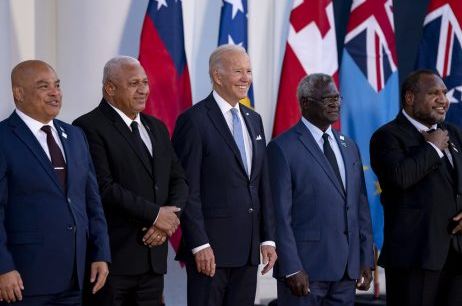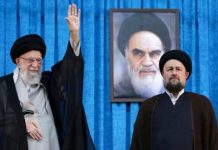Washington has indeed stepped up engagement, but missteps, half-steps, and mixed messaging are getting in the way.
There has been a flurry of Pacific Islands-related press releases coming out of the United States Department of State this year.
The announcements came especially fast and furious during a bevy of meetings in Papua New Guinea this May. On May 22 and 23 alone, the State Department issued four major read-outs: “The United States and Papua New Guinea Sign New Defense Cooperation Agreement,” “U.S.-Pacific Islands Forum Leaders Dialogue in Papua New Guinea,” “Secretary Blinken Witnesses the Signing of the U.S.-Palau 2023 Agreement,” and “Signing of the U.S.-FSM [Federated States of Micronesia] Compact of Free Association-Related Agreements.”
Earlier, U.S. President Joe Biden hosted the “first ever U.S-Pacific Island Country Summit” on September 28-29, 2022, at which the White House’s Pacific Partnership Strategy was launched. There is due to be a second summit in September 2023. (The meetings are held in September as many Pacific leaders are already in New York for the United Nations General Assembly, so it is more likely they would be willing to hang out for a few days for meetings in Washington.)
There is no question, then, that the United States wants to, at the least, look like it is serious about the Pacific Islands. The reason for the renewed interest is obvious. The degree to which Chinese influence operations in the region have undermined local governance has become difficult to ignore, and has the potential (and likely the intent) to undermine U.S. strategic architecture in the Pacific – and with it, the viability of a free and open Indo-Pacific.
DIPLOMAT BRIEF
WEEKLY NEWSLETTER
Get briefed on the story of the week, and developing stories to watch across the Asia-Pacific.
GET THE NEWSLETTER
Local leaders know it. On March 9, 2023, while still president of FSM, David Panuelo wrote a letter in which he described cases of what he called China’s “Political Warfare and Grey Zone activity [that] occur[s] within our borders.”
He wrote:
One of the reasons that China’s Political Warfare is successful in so many arenas is that we are bribed to be complicit, and bribed to be silent… Senior officials and elected officials across the whole of our National and State Governments receive offers of gifts as a means to curry favor. The practical impact of this is that some senior officials and elected officials take actions that are contrary to the FSM’s national interest, but are consistent with the PRC’s national interests.
China’s efforts have combined in some cases with a legitimate dissatisfaction about Western (usually defined as U.S., Australia, and New Zealand) engagement that is then used as a justification for closer ties with Beijing. Some of that engagement would seem to run counter to the best interests of citizens in a democracy but, as described by Panuelo, certainly would seem to be consistent with China’s national interests. That includes things like the China-Solomon Islands security deal, which, according to a leaked draft, allows for the deployment of People’s Liberation Army troops in the Solomons to “protect the safety of Chinese personnel and major projects in Solomon Islands.”

















